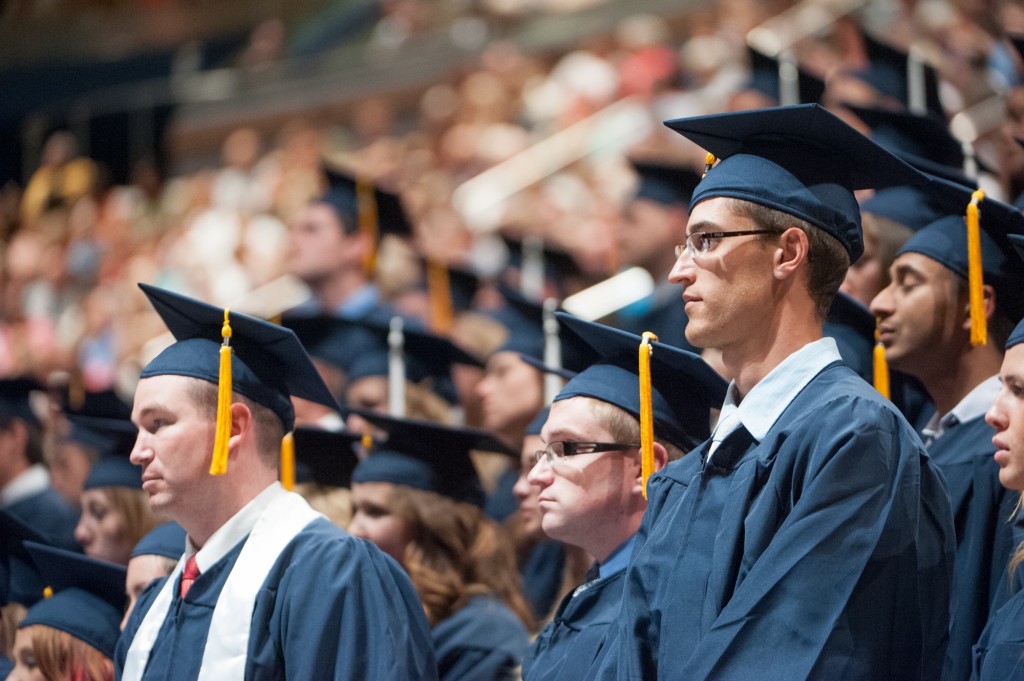
SALT LAKE CITY (AP) — Utah education officials said this week they want to offer colleges more money to help students graduate faster.
The percentage of Utah students who graduate within six years is low compared with the rest of the country, and higher education bosses say offering bonuses could spur schools to help students get their degrees faster.
“College completion is a big push for us,” Utah System of Higher Education spokeswoman Melanie Heath said. “If you come out of college and you have student loans and you haven’t earned your credential, it’s much more difficult to pay that off.”
State higher education leaders are asking the Legislature to increase so-called performance funding to $5 million next year, up from $1.5 million this year. To get a share of that money, the state’s eight public colleges and universities would have to show they helped freshmen create plans for on-time graduation and stick to them during their academic careers.
“I think that this can be a very good tool to help move our institutions forward,” said Dave Buhler, state higher education commissioner, to the Salt Lake Tribune.
Performance funding would remain a small part of the total public money that goes to higher education. But the concept of giving colleges cash incentives has been popular among lawmakers in the past, and the state’s Board of Regents is considering a proposal for what benchmarks schools should meet to get that money.
Graduation wouldn’t be the only metric: schools would have to show they’re giving low-income students access to higher education. Administrators could also earn the money by keeping tuition low, producing more graduate research students or counting the number of transfer students who go on to graduate after they transfer.
But graduation rates are an issue in Utah. In a report released earlier this year, the National Student Clearinghouse Research Center found the state ranks last in the country for its proportion of full-time students finishing bachelor’s degrees within six years.
Some students say tuition is their biggest barrier to finishing.
Lindsay Casper, 27, is taking time off from earning her bachelor’s degree in physics to work for a hotel in Salt Lake City and save money. In the seven years since she first started college, some of her friends have earned master’s degrees. But Casper said she has to work full-time to pay tuition.
“I’m really trying to fight against not graduating at all. I want to move on. I want to do something different with my life,” Casper told the Tribune. “And I need a degree to get there.”




